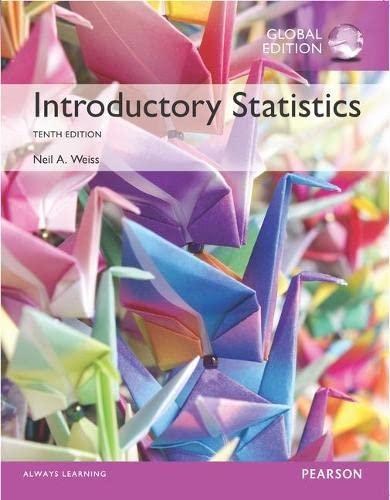Dexamethasone Therapy and IQ. In the paper Outcomes at School Age after Postnatal Dexamethasone Therapy for Lung
Question:
Dexamethasone Therapy and IQ. In the paper “Outcomes at School Age after Postnatal Dexamethasone Therapy for Lung Disease of Prematurity” (New England Journal of Medicine, Vol. 350, No. 13, pp. 1304–1313), T. Yeh et al. studied the outcomes at school age in children who had participated in a double-blind, placebocontrolled trial of early postnatal dexamethasone therapy for the prevention of chronic lung disease of prematurity. All of the infants in the study had had severe respiratory distress syndrome requiring mechanical ventilation shortly after birth. On the WeissStats site, we provide the school-age IQs of the 72 children in the dexamethasone group and the 74 children in the control group, based on the study results. Use the technology of your choice to solve parts (a)–(c).
a. Do the data provide sufficient evidence to conclude that the early postnatal dexamethasone therapy increases the variation in IQ?
Perform a two-standard-deviations F-test at the 10% significance level.
b. Use the two-standard-deviations F-interval procedure to find an 80% confidence interval for the ratio of the population standard deviations of IQs with and without early postnatal dexamethasone therapy.
c. Obtain a normal probability plot for each sample.
d. In light of your plots in part (c), does conducting the inferences you did in parts
(a) and
(b) seem reasonable? Explain your answer.
Step by Step Answer:





